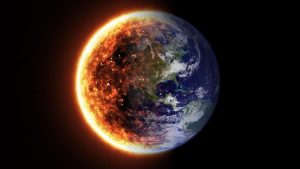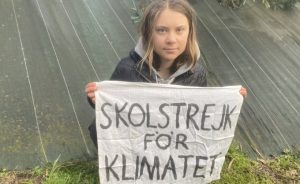At least 2.2 billion children are at ‘extremely high risk’ from the hazards of climate change crisis and pollution, said a report released by UNICEF. The United Nations agency’s head called the situation ‘unimaginably dire.’
The report suggests that nearly every child around the world is vulnerable to at least one of these impacts of the climate crisis, which are heatwaves, floods, cyclones, disease, drought, and air pollution.
Also Read: To counter Climate Change, Wales to plant 86 million trees by end of decade
“It essentially the likelihood of a child’s ability to survive climate change,” said Nick Rees, one of the report’s authors about the paper.
However, there are almost 1 billion children who live in 33 countries that are facing some three or four impacts of these climate depletion activities, simultaneously. These countries include India, Nigeria and the Philippines, and much of sub-Saharan Africa.
The UNICEF report is the first to utilise high-resolution maps of climate and environmental impacts with numbers of child vulnerability such as poverty and access to clean water, education, and healthcare.
Also Read: Lake Mead, Colorado River get water shortage notice as western US dries up
Apart from discussing the implications of climate change vulnerabilities on children, the report also calls for the inclusion of young people in all climate negotiations and decisions to bring about a constructive change in the scenario. The latest such summit being the UN Cop26 summit in Glasgow in November.
“The decisions will define their future. Children and young people need to be recognised as the rightful heirs of this planet that we all share,” said Fore, another author.
The report that talks about children and youth involvement on climate change crisis conversations and initiatives was launched
with youth climate activists on the third anniversary of Greta Thunberg’s first school strike, which sparked a global movement.
After a pause in public gatherings and demonstrations during the COVID-19 pandemic, the next global climate strike is expected to take place on September 24.
Henrietta Fore, UNICEF executive director said about the report, “For the first time, a complete picture of where and how children are vulnerable to climate change, and that picture is almost unimaginably dire. Virtually no child’s life will be unaffected.”
The United Nations Intergovernmental Panel on Climate Change (IPCC) released recently its new report on climate change effects. The report highlights the dire need for private and public corporations to bring down carbon emissions to zero and the augmenting pace of temperature rise.







